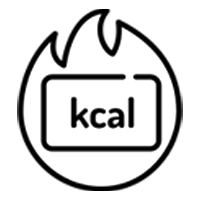Show summary Hide summary
How many calories do we burn doing bodybuilding or weight training?

Everything you need to know about bodybuilding
💪 Wondering how many calories you burn with 30 or 60 minutes of weight training? Just input your profile and time – our tool shows you your energy expenditure.
Check out other REGIVIA calculators:
Bodybuilding: A few examples of calorie expenditure according to weight and time spent working out.
Use the table below to see how many calories you lose by doing bodybuilding!
Weight training
Normal intensity
Expenditure in Kilocalories
| Weight / Time | 15 minutes | 30 minutes | 1 h |
|---|---|---|---|
| 40 kg | 32 | 63 | 126 |
| 50 kg | 39 | 79 | 158 |
| 60 kg | 47 | 95 | 189 |
| 70 kg | 55 | 110 | 221 |
| 80 kg | 63 | 126 | 252 |
| 90kg | 71 | 142 | 284 |
See detailed calculations and the metabolic equivalent for bodybuilding
Everything you need to know about bodybuilding
FIND OUT MORE ABOUT WEIGHT TRAINING
Weight training is a type of physical exercise designed to develop and strengthen the muscles of the body. It is generally done using weights, but can also be done using special machines or bodyweight exercises. Bodybuilding is often practised as part of sports training, physical rehabilitation or simply to improve general fitness.
Some benefits of bodybuilding “weight training“:
- Improved muscular strength: Weight training is one of the most effective ways of developing muscular strength. This can help improve performance in other sports, make daily activities easier and prevent injuries.
- Increased muscle mass : Weight training stimulates the development of muscle fibres, which can increase muscle mass and improve physical appearance.
- Weight loss : Weight training can also help you lose weight, as it increases your basal metabolic rate, i.e. the number of calories your body burns at rest. So even after training, your body continues to burn calories.
- Improved bone health: Weight training is good for bone health. It increases bone density, which can help prevent osteoporosis.
- Improved mental health: Strength training can also have mental health benefits. It can help reduce stress, anxiety and depression, improve self-esteem and promote better sleep quality.
- Prevention of chronic diseases: Strength training can help prevent certain chronic diseases, such as cardiovascular disease and type 2 diabetes, by improving insulin sensitivity and reducing blood pressure.
In short, weight training is an excellent way of improving physical and mental health. However, it is important to follow a training routine suited to your goals and physical condition, and to ensure that you use correct technique to avoid injury.
How to calculate the number of calories burned doing bodybuilding or weight training
The result displayed is expressed in Kcal and is calculated using the MET (Metabolic Equivalent of Task). The MET for each activity is the result of statistical data and cannot therefore be interpreted as an exact calculation, but rather as an estimate taking into account the MET value and the ratio between the time spent doing an activity and the weight of the individual.
For example: the MET value for weight training is 3. This means that a person who does weight training consumes 3 times more energy than when resting during a weight training session.
Discover the detailed formula to calculate your daily energy expenditure while doing bodybuilding or weight training
Consumption in Kcal per minute = (METs*3.5*Weight in kilos)/200
This gives for a 70 kg person working out for 30 minutes:
Consumption in Kcal per minute = (3*3.5*70)/200 = 3.675 Kcal/mn
So for 30 minutes = 3.675*30 = 110.25 kcal for 30 minutes
All sports in detail!



















































